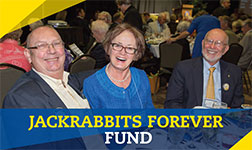Students looking for a rich, cultural study abroad experience can participate in an upcoming program in Senegal and explore a diverse society.
The summer 2014 program in Senegal, led by associate professor of French Molly Enz and assistant professor of geography Hilary Hungerford will take place May 11 through June 3, 2014.
Located on the western portion of Africa, Senegal is known for its musical heritage, Islamic religion and tropical climate.
“Senegal is one of West Africa’s most popular destinations due to its beauty, stable government and welcoming people,†said Enz. “It is called ‘the country of hospitality’ for good reason. The capital city of Dakar is a modern, vibrant city with an abundance of commerce and much to see and do. It’s also a livable and safe city situated along the beautiful Atlantic coast. All of these characteristics make Senegal an ideal location for a study abroad program.â€
Enz and Hungerford hope to have 12 to 18 students take part.
“I see Africa as a continent of emerging possibilities in business and development, and increasingly an important economic partner for the United States,†said Hungerford. “Exploring contemporary Senegal will be a chance for students to learn about realities and future possibilities of the continent.â€
The professors took a 10-day preprogram trip to Dakar this past June.
The trip’s goal was to establish connections at the West African Research Center, set up a tentative itinerary for the upcoming program and to take care of some program logistics.
The professors’ activities ranged from simple duties such as purchasing cell phones to more time-consuming tasks such as visiting potential host families.
“The media in our country often reinforces the negative stereotype that Africa is a continent where famine and violence run rampant,†said Enz. “When students see the beautiful geography of Senegal, learn about its fascinating history and experience its rich culture, I hope that those stereotypes are broken, their world-views are broadened and ultimately their lives are transformed.â€
Senegal highlights
Upon arrival in Senegal, students will stay in a hotel for two nights before staying in pairs with Senegalese host families in Dakar. All of the host families were selected by the West African Research Center.
During the week, students will attend the West African Research Center and explore the history, geography, religion, literature, arts and culture of Senegal, with a particular focus on how the country has developed since its independence.
Students will benefit from lectures by Senegalese faculty from Cheikh Anta Diop University in Dakar.
Students will complete three hours of service learning per week at local organizations in Dakar, including schools, clinics, women’s health groups and other nonprofit organizations.
Weekends will be filled with excursions to rural villages, art festivals, beaches and historical sites.
Gorée Island, located about a mile from Dakar, was an important hub of the Atlantic slave trade from the 16th to 19th centuries. While on the island, students will visit a slave museum, a women’s museum and a slave house.
Students will also explore Toubab Dialaw, a traditional fishing village along the ocean, located 90 minutes from Dakar. At Toubab Dialaw, students will have the opportunity to enjoy the beach, and take lessons in African dance, drumming and batik—a tie-dying technique popular in West Africa.
Toubacouta, a village located four hours south of Dakar, will be the students’ final destination. Students will have the opportunity to enjoy the mangrove and experience the local mix of cultures. Students will visit the ecological village of Sippo Island, speak with villagers, observe local women prepare food and attend a dance performance and a wrestling match.
“I feel that study abroad opportunities in developing countries provide our students with a unique glimpse into what life is like for much of the world’s population,†said Enz. “Students often return home as more engaged, global citizens who are open to new ideas and perspectives.â€
Karissa Kuhle






